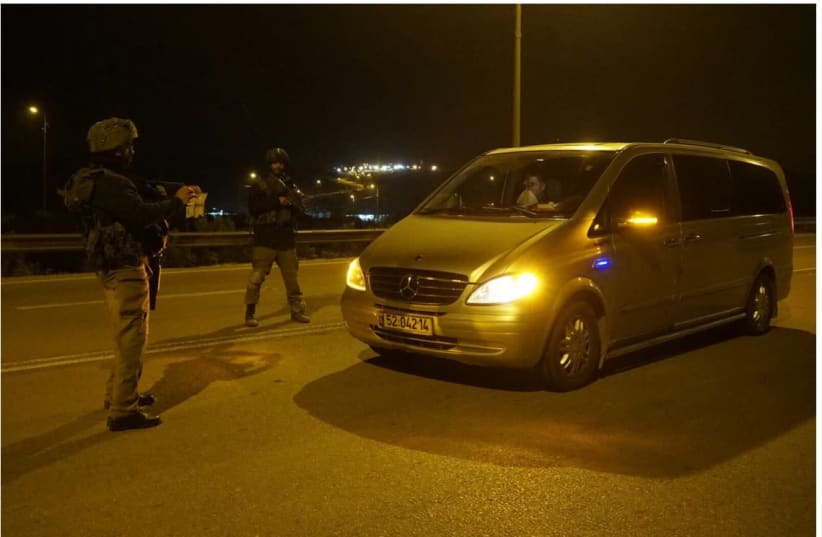The IDF increased its presence in the Samaria region of the West Bank on Wednesday, after a terrorist attack near the Havat Gilad outpost on Tuesday evening claimed the life of an Israeli civilian.Rabbi Raziel Shevach was driving home on Route 60 when terrorists shot at least 22 bullets at his car and escaped. Shevach was rushed to Meir Medical Center in Kfar Saba in critical condition and was pronounced dead shortly afterward.
Overnight, troops from the Kfir Brigade’s Nachshon Battalion and the Samaria Brigade, together with special forces, conducted searches and set up closures of villages in the Nablus region in an effort to locate the killer or killers.Settlers angry over the rabbi’s murder stoned Palestinian targets in the Nablus area after the funeral and into the evening hours, smashing windows in a couple of villages. A Palestinian man suffered a serious eye injury, Palestinian reports said.The army announced an increase of troops to the area, deploying troops from the Oz (commando) Brigade and the Golani Brigade and pledging to do “whatever it takes, both night and day, to maintain the security of the residents of the region.”The official Palestinian Authority news site Wafa reported that Israeli security forces have arrested 13 Palestinians since Tuesday night. In comments to Wafa, PA Nablus Gov. Akram Rajoub described the security forces’ actions in the Nablus area as “collective punishment.”Settlers damaged more than 10 cars owned by Palestinians near Burin and Hawara, villages adjacent to Nablus, a Rabbis for Human Rights field worker said.On Wednesday morning, IDF Chief of Staff Lt.-Gen. Gadi Eisenkot arrived at the scene of the deadly shooting and heard about the details of the attack and the operations that were carried out in the area by the Samaria Brigade, including various intelligence operations to track down the perpetrators.“The main task at the moment is to locate the cell and to prevent it from further attacks,” Eisenkot said.During his visit, he was heckled by settler activist Zvi Sukkot, a resident of the nearby settlement of Yitzhar, who shouted at him, asking why the army had removed some of the roadblocks in the area.“Why do we have to warn you? Why do we have to warn you again and again?” Sukkot shouted before being removed by Eisenkot’s bodyguard.This morning, the Chief of the General Staff, Lt. Gen. Gadi Eisenkot visited the scene of yesterday's shooting attack, where Rabbi Raziel Shevach was murdered, and was briefed by the GOC of the Central Command and additional commanders pic.twitter.com/iqn8oBX509
— IDF (@IDFSpokesperson) January 10, 2018
According to Sukkot, he warned the IDF two days before the attack that an armed Palestinian terrorist was in the area, citing an incident in which another Yitzhar resident was driving his car when a vehicle pulled up next to him and the driver or a passenger pulled out a gun but did not open fire.Writing on Facebook, Sukkot said: “The fact that a Jew was almost murdered a week ago near the scene of last night’s attack and the army didn’t set up roadblocks around Nablus at the time shows the lawlessness in the area. We demand that Eisenkot return permanent checkpoints to the area.”Adam Rasgon contributed to this report.An Israeli father of six was killed last night in cold blood by Palestinian terrorists. Hamas praises the killers and PA laws will provide them financial rewards. Look no further to why there is no peace.Praying for the bereaved Shevach family.
— David M. Friedman (@USAmbIsrael) 10 January 2018
